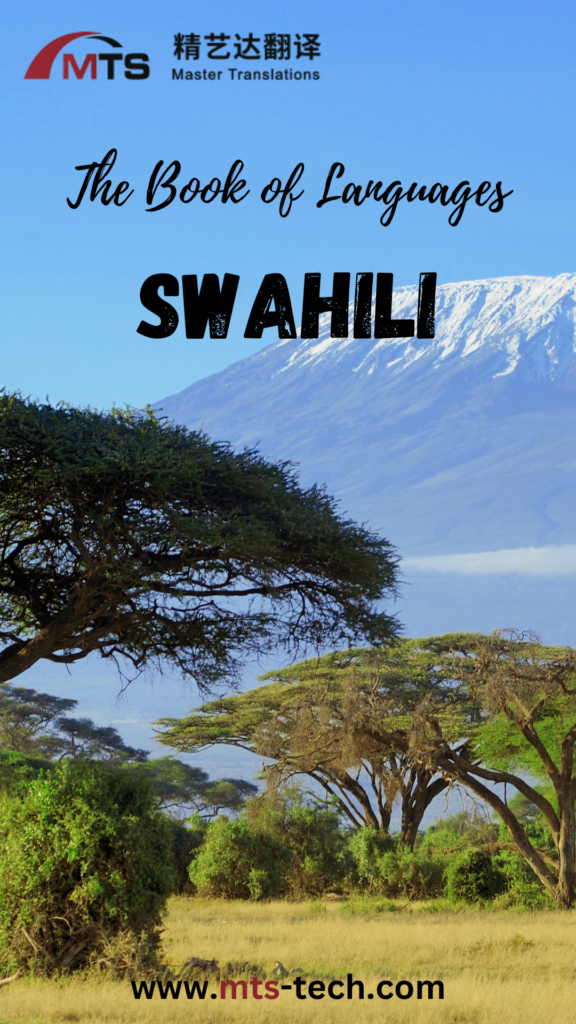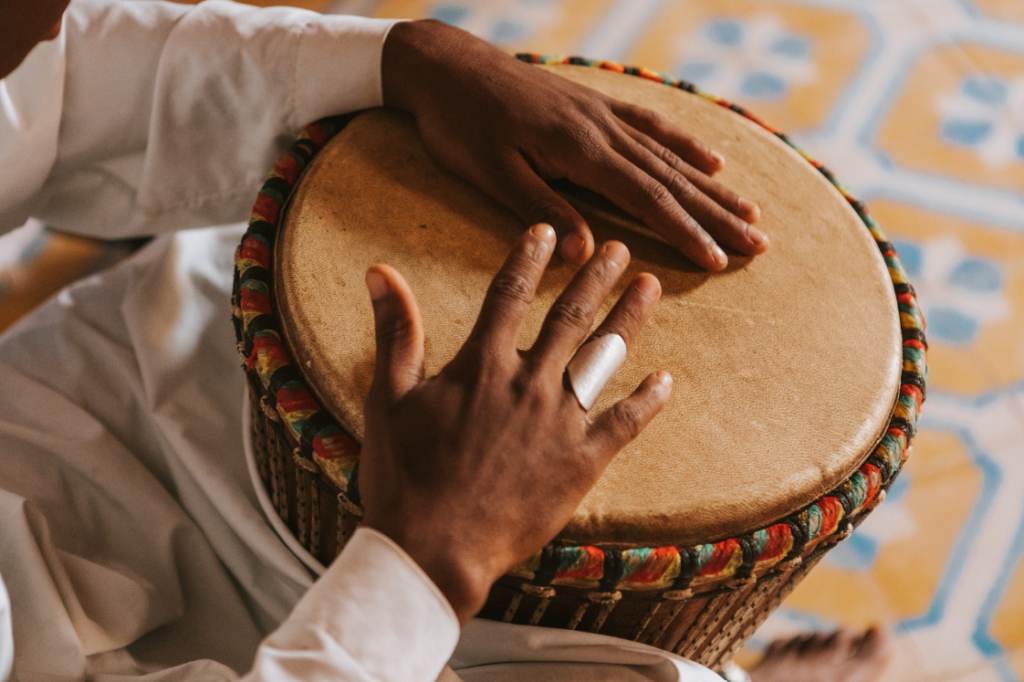
Welcome to the captivating world of Swahili, a language that weaves together the cultural tapestry of East Africa with its rhythmic melodies and rich linguistic heritage. Join us as we explore Swahili language, uncovering its fascinating history, intriguing vocabulary, captivating music, and the joys of learning this remarkable language.

Swahili, also known as Kiswahili, is a Bantu language that holds deep roots in the coastal regions of East Africa. Derived from the mixing of Arabic and Bantu languages, Swahili evolved into a vibrant language of trade, culture, and communication. Today, it serves as a lingua franca across East Africa, spoken by millions as their first or second language, acting as a unifying force that transcends borders and connects diverse communities.

Swahili’s history intertwines with the maritime trade routes of the Indian Ocean, where it evolved into a vibrant language of commerce and cultural exchange. Arab traders, Indian merchants, and European colonizers all left their mark on Swahili, contributing to its lexicon and shaping its unique character. Through centuries of interaction, Swahili flourished as a lingua franca, uniting people across a vast region.
Swahili is a language that dances to its own beat, enchanting with its melodic cadence. The rhythmic flow and harmonious sounds of Swahili are like a musical composition that delights the ears. From the lilting pronunciations to the sing-song intonations, Swahili wraps its linguistic embrace around you, making it a joy to listen to and speak.
Words!
While discovering Swahili, you’ll find a treasure trove of fascinating words that might sound familiar already! From “safari” (journey) to “hakuna matata” (no worries), Swahili offers a delightful collection of words that have found their way into popular culture around the world. Go deeper into the language, and you’ll encounter tongue-friendly terms like “karibu” (welcome), “rafiki” (friend), and “asante” (thank you), which embody the warmth and hospitality for which East Africa is renowned.

Did you know that Swahili is the official language of four African nations, including Kenya and Tanzania? This recognition reflects the language’s importance and its widespread use as a means of communication. Furthermore, Swahili’s simplicity in grammar, with its lack of verb tenses and noun genders, makes it accessible to language learners. Its structure is built around subject prefixes, which express both person and number, adding a touch of efficiency to the language.
Music!

The melodies of Swahili music are enchanting! Where vibrant beats and soulful lyrics captivate listeners. Taarab, a genre that blends Swahili and Arabic influences, sets the stage for heartfelt storytelling through melodic tunes. Bongo Flava, on the other hand, infuses Swahili with modern elements like hip-hop and R&B, creating a unique fusion of sounds. Swahili music is a celebration of cultural identity, heritage, and the power of expression.

Learning Swahili opens doors to understanding the rich cultures and vibrant communities of East Africa. With its straightforward grammar and increasing global significance, Swahili presents an exciting opportunity for language enthusiasts. Whether you’re exploring the savannahs of the Serengeti, engaging with local communities, or immersing yourself in Swahili literature and films, the joy of learning Swahili will enhance your cultural experiences and foster meaningful connections.

